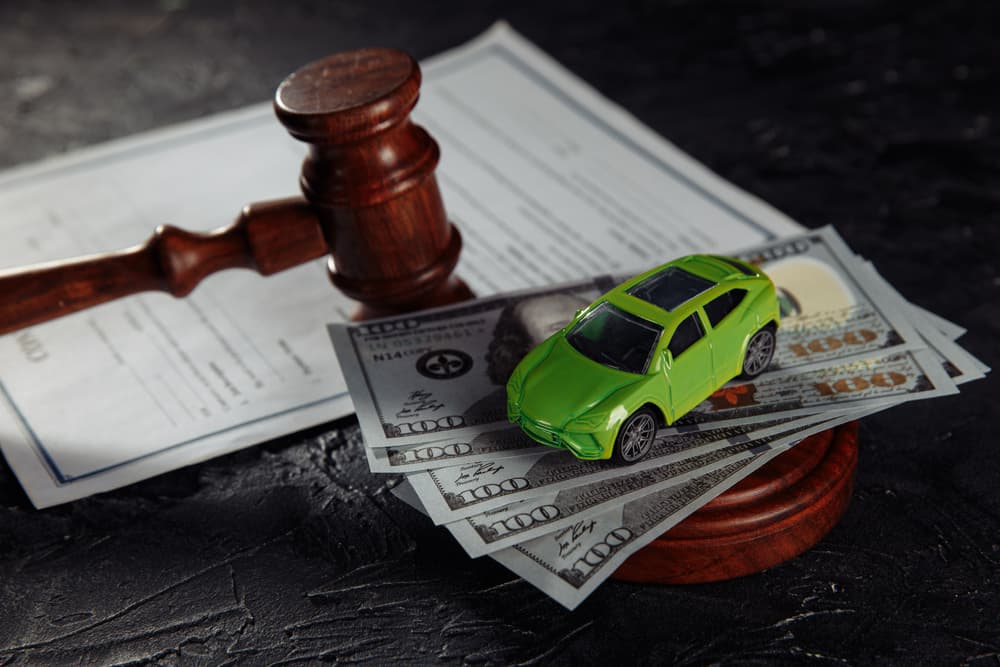Quick Answer
A Guide to the Laws of Statute of Limitations in CT
In the aftermath of a car accident, your attention likely turns to immediate challenges. Making sure everyone’s safe, talking to your insurance company, repairing your car, and finding medical care. But as all the expenses of recovering from a car accident add up, you might find yourself asking—is there a way to recoup some of these costs?
The answer is yes. According to the CT car accident laws, you can take legal action against the person or company you believe caused your car accident. However, there’s a limited window of time in which you can take legal action after a car accident, known as the statute of limitations.
We’ll break down what you need to know about the statute of limitations in CT so that you can decide whether or not hiring a Connecticut car accident lawyer and pursuing legal action makes sense for you.
Statute of Limitations for Personal Injury Lawsuits in CT
Many states have different statute of limitations for personal injury lawsuits (i.e., the kind of lawsuit you’d typically file if you’re injured in a car accident). For example, New Jersey and North Dakota have a six-year statute of limitations on personal injury lawsuits, while Louisiana and Kentucky have a one-year statute of limitations on personal injury lawsuits.
In Connecticut, the statute of limitations for personal injury lawsuits is two years.
Injuries caused by automobile accidents fall under that umbrella. If you try to file a personal injury lawsuit after the statute of limitation has passed, the person you’re suing will likely be able to have the suit dismissed by arguing that the civil statute of limitations period has passed.
Statute of Limitations for Car Accident Lawsuits in CT
While many lawsuits related to car accidents fall under the “personal injury” category, not all of them do.
Let’s break down the Connecticut statute of limitations for three different types of lawsuits related to car accidents:
- Personal injury – If you or a loved one is injured in an automobile accident, you may want to pursue a personal injury lawsuit. The statute of limitations for a personal injury case is two years after the date of the accident that caused the injury.
- Property damage – If you’re in a car accident that damages your car or some of your other personal property, you have until two years after the date of the accident to sue for damages.
- Wrongful death suit – If the unthinkable happens and someone you love dies as a result of injuries they received in a car accident, you have until two years after the date of their passing to sue. If they died the same day as the car accident, then you have two years after the accident to sue. If, however, they pass days or months later as a result of an injury they received in the car accident, then the statute of limitations period starts from the day they passed, not the date they were injured.
If you’re unsure what type of legal action makes sense for your case, we’d recommend a free case consultation as soon as possible to confirm whether or not your case would fall within the CT statute of limitations, as well as give you an idea of what to expect if you do decide to take legal action.
When to File a Car Accident Lawsuit in CT
You have two years to file a car accident lawsuit in Connecticut. But if you’re interested in taking legal action, we recommend talking to a car accident lawyer about your case as soon as possible.
Here’s why:
- The sooner you start the legal process, the sooner you can come to a resolution. Since a personal injury case can take years to settle, it’s typically in your best interest to start the process as soon as possible and know the average car accident settlement in CT.
- If there’s one thing an accident underlines, it’s how unpredictable life can be. You might intend to take legal action, but two years can go by faster than you think. To avoid a last minute scramble—or worse, realizing the statute of limitations has already passed—try to look into your legal options as soon as possible.
- If you choose a legal team with a more holistic approach to supporting accident victims, they may be able to help you with other support options while you wait for your legal case to be resolved. For example, at Mighty, case managers can help you connect with quality local medical care after your accident. They can also help you explore financial support options like comparing and applying for cash advances, facilitating interest-free loans between friends and family, and applying for grants and charitable gifts while you wait for your lawsuit to be resolved.
Beginning the legal process earlier means you have more time to compare different legal teams and find out which option fits best with your needs and priorities. Not all legal teams are created equal—you deserve a legal time that makes your experience as smooth as possible.
Navigating Your Recovery with Mighty At Your Side
At Mighty, we believe everyone recovering from an accident deserves effective, affordable, transparent support. That’s why we've compiled Mighty's Car Accident Lawyer Directory to help you find a trusted Connecticut accident attorney today.
Sources
Enjuris. Car Accidents: Statutes of Limitations. https://www.enjuris.com/car-accident/statutes-of-limitations/
NOLO. Connecticut Car Accident Laws. https://www.nolo.com/legal-encyclopedia/connecticut-car-accident-laws.html
Know Your Claim’s Worth—and Settle It
Serious injury or no injury at all, move your case forward instantly from your phone.
Thank you for submitting your information.

About the author
Luke is a warm-hearted and highly skilled legal operations expert with an impressive 8-year track record in the personal injury field. As the Client Operations Lead at Mighty, he is dedicated to providing exceptional support, transparent communication, and genuine empathy to clients during their challenging journey. His expertise in streamlining processes and implementing cutting-edge technology makes him an indispensable ally for clients, case managers, and attorneys in their pursuit of justice.






